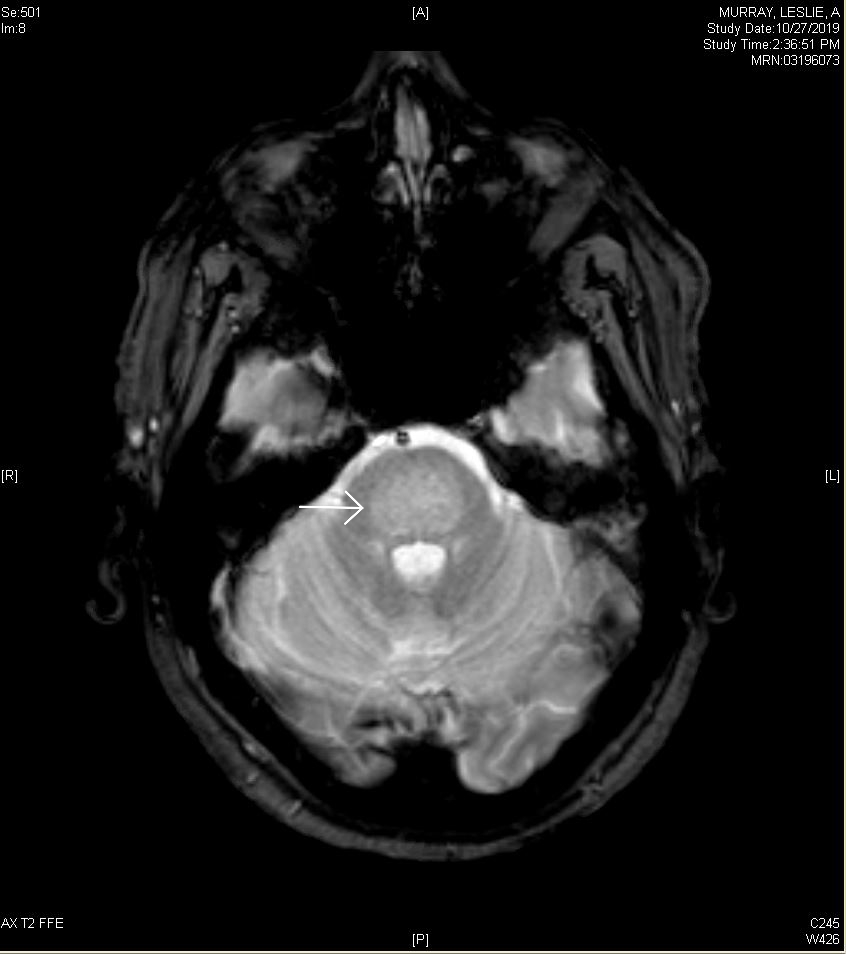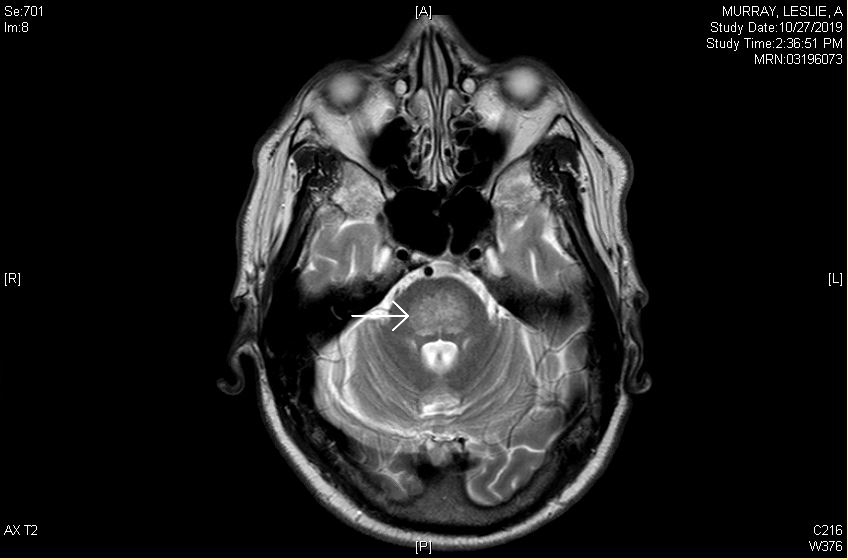Case Presentation: 53-year-old man with history of alcohol abuse, cirrhosis (with preserved liver function) presented with complaints of bilateral hand tremors and hallucinations for one day. He was unable to provide history due to confusion. Computed tomography scan of the brain revealed microvascular ischemic changes and an old lacunar infarct. Patient was delirious and actively withdrawing from alcohol. He was started on intravenous thiamine and folate along with Ativan, Haldol, Librium and dexmedetomidine for prevention of withdrawal seizures. Patient remained alert and oriented only to self, was having paranoid delusions and confabulation. All sedative medications were discontinued however his mental status remained unchanged. His electrolytes, liver function tests and ammonia levels were unremarkable, sodium remained between 130-140 mg/dL. Syphilis antibody was positive however rapid plasma reagin remained negative suggesting a treated infection. MRI brain was done for suspected Korsakoff syndrome however it revealed pontine white matter changes reflective of CPM.
Discussion: CPM, although mostly seen with rapid correction of hyponatremia, may also be associated with alcohol use and withdrawal. It is defined as loss of the myelin sheath around the nerve roots which leads to nerve damage and mostly irreversible neurological changes. Alcohol-associated CPM is suggested to occur due to dehydration, inability of the neurons to maintain protective mechanisms against osmotic stress and direct toxicity of alcohol itself. Similar cases have been reported in the literature by Kaushik et al and Jae Ho Kim et al, and they are shown to have a better prognosis when compared to rapid hyponatremia-correction-associated CPM.
Conclusions: Symptoms of CPM may be similar to Korsakoff syndrome, thus leading to confusion in the diagnosis; however, the diagnosis can be differentiated based on MRI findings. As clinicians, with such a patient, it is important to rule out CPM-related neurological changes as even though most cases are irreversible like Korsakoff syndrome, studies suggest these patients would benefit from proper rehabilitation to reduce symptoms, and eventually improving their prognosis.


